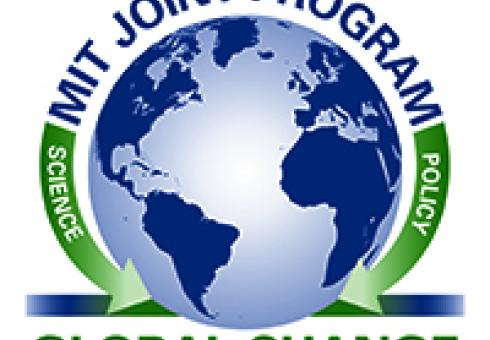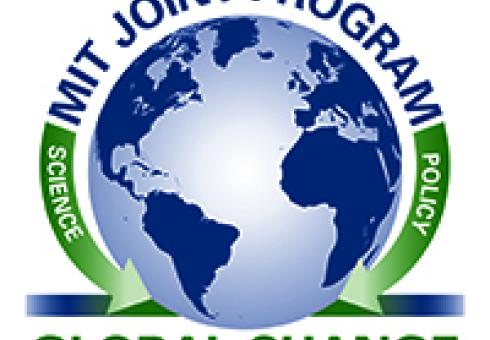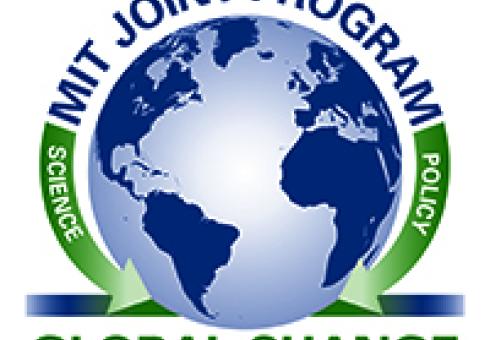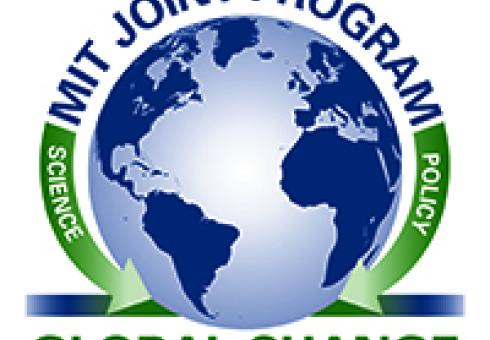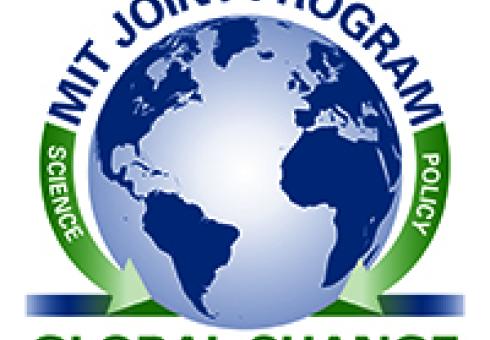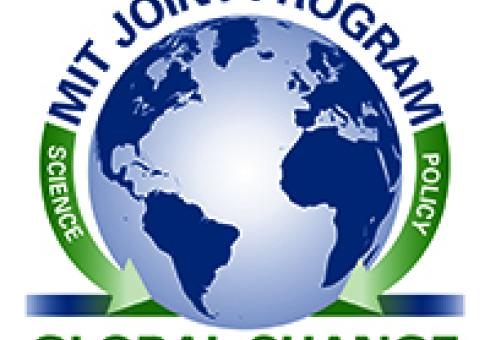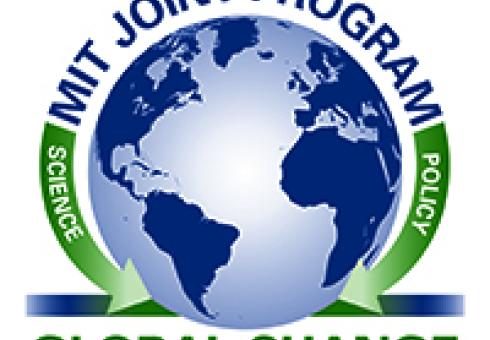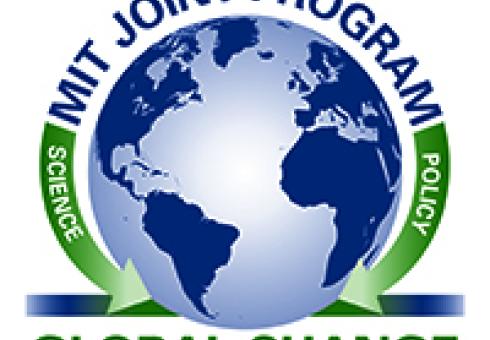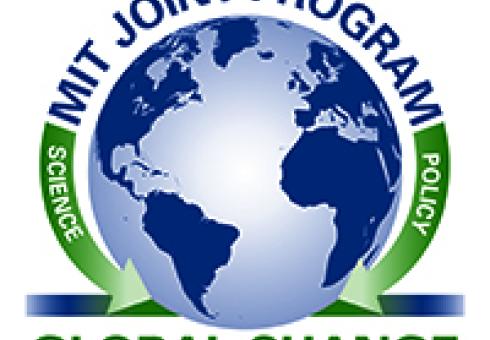News + Media
VIDEO of Climategate discussion
Event and participant details
At Dec. 10 forum, MIT faculty experts discussed what 'Climategate' really means for climate science and the ongoing policy negotiations in the Congress and at Copenhagen.
The leaked e-mails from the climate scientists at the University of East Anglia (UEA) have caused a huge public relations headache. The e-mails, in which the scientists seemed to question or even exaggerate their research, have provided new fodder for climate-change skeptics, who now feel they have "proof" that global warming is a hoax. The e-mails may be proof of nothing other than frustrated or impatient scientists, but the scientific community nonetheless has to deal with the fallout — the public’s increasing doubt about the validity of climate science, and maybe even doubt about scientific research in general.
"The Great Climategate Debate," held on Dec. 10 (see event and participant details) featured a panel of MIT faculty addressing the issues — both scientific and political — surrounding the controversy in the hopes that it wouldn't become the main focus of this month's United Nations Climate Change Conference in Copenhagen, Denmark. The debate involved the many issues raised by the scandal: the validity of climate science, the motives of the hackers who leaked the e-mails, the need for responsible scientific reporting and ethical standards, and the way the public interprets and understands information from the scientific community.
Kerry Emanuel, the Breene M. Kerr Professor of Meteorology, fears that Climategate was a "premeditated distraction from the main issues" of climate science. Emanuel said he's concerned with the identity and motives of the hackers, citing the very rich "machine" of global warming deniers as a possible culprit. As for the e-mails, he thinks they show nothing more than "humans — a few with failings. Mostly, it shows scientists hard at work."
Richard Lindzen, the A. P. Sloan Professor of Meteorology, believes the e-mails were leaked by a whistleblower within the Climate Research Unit who, like Lindzen, is disillusioned by what he sees as the scientific community’s one-sided argument over climate change. "Undeniably," he said, "we are dealing with issues illegal and unethical." The debate, he said, is whose illegal and unethical behavior is the larger issue: the scientists or the hackers?
Although Ron Prinn, the TEPCO Professor of Atmospheric Science and director of the Center for Global Change Science, thinks the e-mails are unethical and unprofessional, he believes this means little for the validity of the UEA scientists' studies. This controversy, he said, should not cause us to reevaluate our concern over global warming. Prinn notes that the larger body of evidence remains robust: The UEA scientists represent just a few of the many scientists from institutions around the world who are studying climate-change issues.
More...
Moderator: Henry D. Jacoby
Kerry Emanuel '76, PhD '78
Judith Layzer PhD '99
Stephen Ansolabehere
Ronald G. Prinn SCD '71
Richard Lindzen
The co-director of MIT's Global Change program discusses what to expect from the U.N. Climate Change Conference, and the effects of 'Climategate'
Delegates from around the world began meeting this week in Copenhagen to try to work out a new U.N. pact to address global climate change. Henry Jacoby, co-director of the MIT Joint Program on the Science and Policy of Global Change and professor of management at the Sloan School of Management, talks about what to watch for at the December 7-18 conference, and what the repercussions may be from the recent release of hacked e-mails and other documents from the University of East Anglia relating to climate-change research. Climate-change skeptics have dubbed the affair “Climategate” and say the materials show a scientific conspiracy to exaggerate the risks of climate change. Many in the scientific community, however, say the release of documents represents a smear campaign.
Q: Expectations about the Copenhagen climate meeting seem to have been on a roller-coaster ride. What is your sense at this point of what will come of this meeting?
A: The original objective and expectation, back when the negotiating text for this meeting was agreed in Bali, was that they would have some kind of binding commitments by developing countries, some agreement to actions by developed countries, and agreement on financial transfers. That’s what they were supposed to do. We aren’t going to be able to do that, for a couple of reasons. [More... ]
Q. How serious are the revelations in the so-called “Climategate” release of e-mails, and what effect do you think that may have on Copenhagen or on other attempts to deal with climate-change issues?
A. There are several ways of thinking about that. Is it a serious challenge to the science of this issue? The answer is no. This is kind of a peek under the blanket of a discussion that went on 10 years ago, about the analysis of tree rings and other data, to try to reconstruct temperature histories over the last thousand years. The work led to the conclusion that the current temperature rise over the last 50 years is both unique in its pace, and has produced temperatures higher than we’ve seen in the last thousand years.
There has been a lot of analysis of that issue since, by other groups, reaching similar conclusions. Also, the basis of our work, as we develop our impression of the risk, does not depend on that data. It depends on much more firm temperature information from the last 150 years. So in terms of its effect on the science, I don't believe it's serious.
It is unfortunate, however, that this has an effect on politics in the U.S. It makes it appear that there's some conspiracy of scientists here. Scientists talk to each other in informal ways. A lot of words they use appear different in public than what they were intended to be. And to some degree this email file is being purposefully misinterpreted, creating an impression that's really unfortunate. But it is true that these scientists should have been more careful — they didn't understand, I think, when they were doing this original work, how important this would be in the political discussion. It provides ammunition to people who argue climate is not a problem, and confuses the public. How serious that is, I don't know. [More... ]
Q. How urgent is the need for action on climate change, in your view? That is, if the world fails to adopt specific, binding targets for reduction of greenhouse gases at this meeting, how serious could the consequences of that be?
A. This is a century-scale problem, so it's not exactly a matter of what you do this year. But we've been at this for 20 years, and we haven't done very much yet. What's important is to get started. We have a lot to learn about the costs of mitigation, and we have to learn even more about the climate system, but waiting to find out before taking action can be costly.
We need to do something to reduce the impact of human activities over a timescale of many decades, but the decades are going by. It's not crucial what we do in 2009 or 2010, but it's quite important that we get started on some serious measures to decrease emissions, and create the international structure, and domestic policies, to have some chance for sustained action over many decades. It’s just a matter of lifting one foot to take the first step now. Long-term targets, say for specific reductions by 2050, have their purpose in terms of motivating people. But the main thing is we’ve got to agree to do something in the short run, on critical issues like what the United States is going to do, and what the relationship is going to be between the developing and developed countries. So achievements this year or next year are not crucial, but failing to get the process on track would be very serious.
More...
MIT’s Joint Program on the Science and Policy of Global Change has pegged the annual cost of the proposed cap-and-trade legislation in Congress at $400 per U.S. household. But estimating the cost of doing nothing is far more difficult.
Sergey Paltsev, a principal research scientist in MIT’s Joint Program on the Science and Policy of Global Change, was the lead author of a recent report that analyzed the costs of climate legislation currently being debated in Congress. The analysis looked at the costs associated with the Waxman-Markey bill that was passed in June, and found the bill’s cap-and-trade provisions would have an average annual cost per U.S. household of $400. The study did not provide a comparison of what costs would be for a “no policy” case — in other words, the costs that would result from unmitigated climate change, or from other causes such as air or water pollution that might be associated with unregulated burning of fossil fuels.
Q: Have there been any changes proposed since the original bill was passed, or that are currently under discussion, that would make much of a difference in this cost estimate, one way or the other?
A: Currently, the already-passed Waxman-Markey bill and the Senate version, the Kerry-Boxer bill, are similar in emissions-reduction targets and total offsets. There are some minor differences, but unless major changes are proposed during the discussions in the Senate, the overall costs are similar. It should be noted that now the heat of the discussions are on the emission allowance allocation, which would determine who gets the emissions rights for free, who has to pay for them, and how the permit revenue will be spent. The outcome of this process would benefit or hurt certain industries or households of different income classes. The decisions about revenue allocation would affect who gains and who loses more, and as the stakes are high, there are many parties trying to influence the outcome. But the average economic burden, which is what we calculated, is not much affected by the allowance allocation.
Q: Apart from measures that are specifically being considered now, did your analysis suggest any different approaches, or modifications of the present proposal, that would bring about any significant reduction in these costs?
A: We have done other studies where we have considered issues related to the design of cap-and-trade or carbon tax systems. Ultimately, the cost of the policy is determined by the reduction targets, the possibility of banking or borrowing of permits over time, the amounts of offsets, and any additional measures directed at greenhouse gas reduction, such as renewable electricity standards, subsidies to carbon-free technologies, building standards, energy efficiency measures, etc. For the same reduction targets, overall costs are lower if there are fewer additional measures. However, these additional measures are popular because they allow hiding the true cost of the policy. For example, renewable electricity standards would reduce carbon price but increase the overall cost to the economy. As carbon price is a more visible indicator and overall cost is harder to measure, legislators might prefer to introduce such standards despite their economic inefficiency, simply because they create an illusion of achieving a target at a lower cost. At the same time, as I have already mentioned, distribution of allowance revenue could reduce the impact on, for example, low-income families or coal-producing regions, and we have a forthcoming study addressing this issue.
Q: Can you address how the costs that could result from a “no policy” case might compare with the costs of the proposed regulations?
A: In the case of “no climate policy,” I think it is more appropriate to talk about "damages" instead of “costs,” because there are some things that can be easily associated with dollar amounts and there are other things that are harder to quantify and to put a price tag on. At the MIT Joint Program we have done studies where we are trying to quantify the costs associated with the impacts of climate change on agriculture and coastal infrastructure, and of air pollution on human health. These are easier to quantify. However, there are many other important effects that cannot be convincingly put into a dollar measure, and for this reason we have not tried to estimate the economic and environmental effects of a no-policy path. Consider, for example, the main icon of a climate change — polar bears. How can one put an appropriate cost in dollar terms for a potential disappearance of polar bears due to melting Arctic ice? Or, as another example, on a coral bleaching due to increasing ocean temperature and acidification? Some people even argue that climate change is a strategic problem that should not be considered in terms of a traditional “benefit-cost” approach.
In our analysis of the Waxman-Markey bill we focus on estimating costs of the stated targets. We always stress that there are many uncertainties in our cost estimates and we try to quantify these uncertainties, but the uncertainties in the damages estimates are much larger.
Some people argue about yet another aspect of the problem. Societies have many important issues where resources are needed — to name just a few, a fight against hunger and poverty, improved access to medical facilities and education, fighting AIDS and malaria, and providing a better water supply. Climate change is an important problem, but is it diverting resources from other no-less-important problems? There are plenty of links between climate change, poverty, water supply, and diseases — but with scarce resources, is it better to focus on solving climate change or, for example, directly on fighting poverty? Obviously, we should try to do both. But where should the emphasis be? These are tough questions: How do we equate a potential loss of life of a polar bear with that of a hungry child in Africa now?
More...
Thomas Karl, Tim Lenton, Philip Boyd, Joyce Penner, David Battisti, David Keith, James Fleming, Judy Layzer, Catherine Redgewell, Carl Wunsch, Cornelia Dean, Kerry Emanuel, Dara Entekhabi, Ronald Prinn
New analysis shows that without proper regulation, biofuels programs aimed at curbing greenhouse gases could do just the opposite
A global push toward production of biofuels, advocated by many as a measure to curb greenhouse gas emissions, could have exactly the opposite effect unless adequate controls are put in place, a new study has found. Because forests, which remove carbon dioxide from the atmosphere, could end up being cut down to create new cropland as a result of intensive agriculture for fuels, a gallon of biofuel could ironically end up being responsible for twice as much greenhouse gas emission as a gallon of gasoline.
This indirect impact from biofuels production is "an inescapable effect" unless regulations control it, but it cannot directly be measured, says John Reilly, associate director of the MIT Joint Program on the Science and Policy of Global Change. Reilly, along with five other MIT researchers, is a co-author of the new study published Oct. 23 in Science. The lead author is Jerry Melillo of the Marine Biological Laboratory in Woods Hole, Mass.
The study found that a massive campaign to substitute biofuels for petroleum could result in a net doubling of the amount of land devoted to agriculture worldwide - and that, perhaps surprisingly, there is enough land available to sustain that. But this change in land use, unless coupled to regulations that either specifically protect forestland, or that tax the destruction of forest sufficiently to render that uneconomic, would lead to a net increase in carbon emissions. In addition, the increase in intensive agriculture would require an enormous addition of nitrogen fertilizers to the soil, producing emissions of nitrous oxide, a much more potent greenhouse gas than CO2. Together, these two effects could double the overall emissions attributable to land use. However, with proper controls in place, the use of biofuels instead of petroleum could reduce carbon emission by almost four-fifths, Reilly says.
More...
Comprehensive analysis of the odds of climate outcomes under different policy scenarios shows significant benefits from early actions.
A new analysis shows that even moderate carbon-reduction policies now can substantially lower the risk of future climate change. But without prompt action, extreme changes could soon become much more difficult, if not impossible, to control.
Analysis shows climate change to yield more extreme rainfall — Heavier rainstorms lie in our future. That's the clear conclusion of a new MIT and Caltech study on the impact that global climate change will have on precipitation patterns. But the increase in extreme downpours is not uniformly spread around the world, the analysis shows.
Overall, previous studies have shown that average annual precipitation will increase in both the deep tropics and in temperate zones, but will decrease in the subtropics. However, it's important to know how the magnitude of extreme precipitation events will be affected, as these heavy downpours can lead to increased flooding and soil erosion. It is the magnitude of these extreme events that was the subject of this new research, which will appear online in the Proceedings of the National Academy of Sciences this week. The report was written by Paul O'Gorman, assistant professor in the Department of Earth, Atmospheric and Planetary Sciences at MIT, and Tapio Schneider, professor of environmental science and engineering at Caltech. (View article.)
Model simulations used in the study suggest that precipitation in extreme events will go up by about 5 to 6 percent for every one degree Celsius increase in temperature. Separate projections published earlier this year by MIT's Joint Program on the Science and Policy of Global Change indicate that without rapid and massive policy changes, there is a median probability of global surface warming of 5.2 degrees Celsius by 2100, with a 90 percent probability range of 3.5 to 7.4 degrees.
Specialists in the field called the new report by O'Gorman and Schneider a significant advance. Richard Allan, a senior research fellow at the Environmental Systems Science Centre at Reading University in Britain, says, "O'Gorman's analysis is an important step in understanding the physical basis for future increases in the most intense rainfall projected by climate models." He adds, however, that "more work is required in reconciling these simulations with observed changes in extreme rainfall events."
The reason the climate models are less consistent about what will happen to precipitation extremes in the tropics, O'Gorman explains, is that typical weather systems there fall below the size limitations of the models. While high and low pressure areas in temperate zones may span 1,000 kilometers, typical storm circulations in the tropics are too small for models to account for directly.
More...
Fed by MIT data, display shows extent of human-caused emissions
The latest ominous number to appear on the side of a New York building is a real-time count of the tons of carbon dioxide (and equivalents of other greenhouse gases) emitted each day, based on MIT calculations. The 70-foot-tall display, unveiled last week by Deutsche Bank outside New York's Madison Square Garden, is modeled after the familiar Times Square Debt Clock, which keeps a running tally of the U.S. national debt. The new display's rapidly rising red digits are based on data collected and analyzed by MIT's Joint Program on the Science and Policy of Global Change, using a global network of monitoring stations. The display not only shows the level of greenhouse gases entering the atmosphere but also underscores how businesses and financial institutions are starting to grow concerned about the economic impacts of climate change. More...
New analysis shows warming could be double previous estimates.
The most comprehensive modeling yet carried out on the likelihood of how much hotter the Earth's climate will get in this century shows that without rapid and massive action, the problem will be about twice as severe as previously estimated six years ago — and could be even worse than that. The study uses the MIT Integrated Global Systems Model, a detailed computer simulation of global economic activity and climate processes that has been developed and refined by the Joint Program on the Science and Policy of Global Change since the early 1990s. The new research involved 400 runs of the model with each run using slight variations in input parameters, selected so that each run has about an equal probability of being correct based on present observations and knowledge. Other research groups have estimated the probabilities of various outcomes, based on variations in the physical response of the climate system itself. But the MIT model is the only one that interactively includes detailed treatment of possible changes in human activities as well — such as the degree of economic growth, with its associated energy use, in different countries.
Study co-author Ronald Prinn, co-director of the Joint Program and director of MIT's Center for Global Change Science, says that, regarding global warming, it is important "to base our opinions and policies on the peer-reviewed science," he says. And in the peer-reviewed literature, the MIT model, unlike any other, looks in great detail at the effects of economic activity coupled with the effects of atmospheric, oceanic and biological systems. "In that sense, our work is unique," he says.
The new projections, published this month in the American Meteorological Society's Journal of Climate, indicate a median probability of surface warming of 5.2 degrees Celsius by 2100, with a 90% probability range of 3.5 to 7.4 degrees. This can be compared to a median projected increase in the 2003 study of just 2.4 degrees. The difference is caused by several factors rather than any single big change. Among these are improved economic modeling and newer economic data showing less chance of low emissions than had been projected in the earlier scenarios. Other changes include accounting for the past masking of underlying warming by the cooling induced by 20th century volcanoes, and for emissions of soot, which can add to the warming effect. In addition, measurements of deep ocean temperature rises, which enable estimates of how fast heat and carbon dioxide are removed from the atmosphere and transferred to the ocean depths, imply lower transfer rates than previously estimated.
Prinn says these and a variety of other changes based on new measurements and new analyses changed the odds on what could be expected in this century in the "no policy" scenarios — that is, where there are no policies in place that specifically induce reductions in greenhouse gas emissions. While the outcomes in the "no policy" projections now look much worse than before, there is less change from previous work in the projected outcomes if strong policies are put in place now to drastically curb greenhouse gas emissions.
Without action, "there is significantly more risk than we previously estimated," Prinn says. "This increases the urgency for significant policy action. [...] There's no way the world can or should take these risks," Prinn says. And the odds indicated by this modeling may actually understate the problem, because the model does not fully incorporate other positive feedbacks that can occur, for example, if increased temperatures caused a large-scale melting of permafrost in arctic regions and subsequent release of large quantities of methane, a very potent greenhouse gas. Including that feedback "is just going to make it worse," Prinn says.
The lead author of the paper describing the new projections is Andrei Sokolov, research scientist in the Joint Program. Other authors, besides Sokolov and Prinn, include Peter Stone, Chris Forest, Sergey Paltsev, Adam Schlosser, Stephanie Dutkiewicz, John Reilly, Marcus Sarofim, Chien Wang and Henry Jacoby, all of the MIT Joint Program on the Science and Policy of Global Change, as well as Mort Webster of MIT's Engineering Systems Division and David Kicklighter, Benjamin Felzer and Jerry Melillo of the Marine Biological Laboratory at Woods Hole.
Prinn stresses that the computer models are built to match the known conditions, processes and past history of the relevant human and natural systems, and the researchers are therefore dependent on the accuracy of this current knowledge. Beyond this, "we do the research, and let the results fall where they may," he says. Since there are so many uncertainties, especially with regard to what human beings will choose to do and how large the climate response will be, "we don't pretend we can do it accurately. Instead, we do these 400 runs and look at the spread of the odds."
Because vehicles last for years, and buildings and powerplants last for decades, it is essential to start making major changes through adoption of significant national and international policies as soon as possible, Prinn says. "The least-cost option to lower the risk is to start now and steadily transform the global energy system over the coming decades to low or zero greenhouse gas-emitting technologies."
Early detection may permit 'nipping it in the bud' — A gas used for fumigation has the potential to contribute significantly to future greenhouse warming, but because its production has not yet reached high levels there is still time to nip this potential contributor in the bud, according to an international team of researchers. Scientists at MIT, the Scripps Institution of Oceanography in San Diego and other institutions are reporting the results of their study of the gas, sulfuryl fluoride, this month in the Journal of Geophysical Research. The researchers have measured the levels of the gas in the atmosphere, and determined its emissions and lifetime to help gauge its potential future effects on climate.
Sulfuryl fluoride was introduced as a replacement for methyl bromide, a widely used fumigant that is being phased out under the Montreal Protocol because of its ozone-destroying chemistry. Methyl bromide has been widely used for insect control in grain-storage facilities, and in intensive agriculture in arid lands where drip irrigation is combined with covering of the land with plastic sheets to control evaporation. "Such fumigants are very important for controlling pests in the agricultural and building sectors," says Ron Prinn, director of MIT's Center for Global Change Science and a co-author on the new paper.
Prinn adds that "fumigation is a big industry, and it's absolutely needed to preserve our buildings and food supply." But identifying the greenhouse risks from this particular compound, before many factories have been built to produce it in very large amounts, would give the industry a chance to find other substitutes at a time when that's still a relatively easy change to implement. "Given human inventiveness, there are surely other alternatives out there," says Prinn. He describes this approach as "a new frontier for environmental science — to try to head off potential dangers as early as possible, rather than wait until it's a mature industry with lots of capital and jobs at stake." More ...

